
THE VOICE OF INTERNATIONAL LITHUANIA
|
VilNews has its own Google archive! Type a word in the above search box to find any article.
You can also follow us on Facebook. We have two different pages. Click to open and join.
|
Speakers corner!
- Posted by - (1) Comment
They’re dead but they won’t lie down
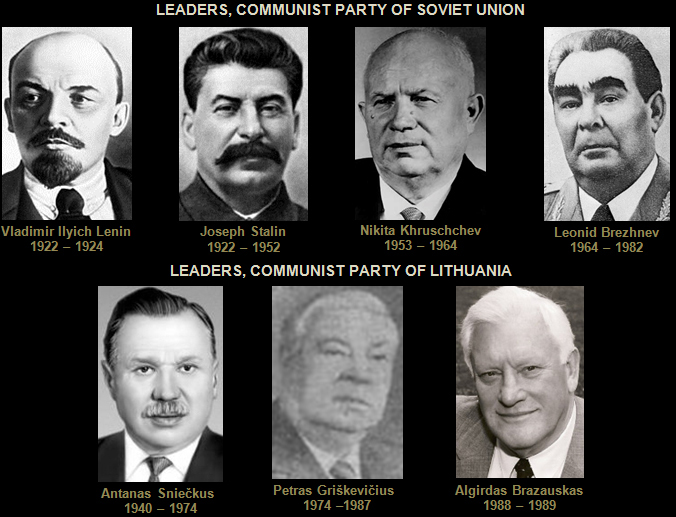
Important parliamentary elections are soon due in Lithuania. The party which leads in the polls had its origins in the Lithuanian Communist Party 20 years ago, and many believe that the nomenclature from those days still is very much alive in this party as well as in other parties of today. That modern, democratic governance is still not implemented and practiced. That corruption and personal gain is more important than the Lithuanian people's best. We hereby invite you to debate. Is the Lithuania nomenclature still alive?
- Bookmark :
- Digg
- del.icio.us
- Stumbleupon
- Redit it
- Posted by - (1) Comment




- Bookmark :
- Digg
- del.icio.us
- Stumbleupon
- Redit it
- Posted by - (0) Comment
The trampling of Lithuania’s history
Many Lithuanian historians continually choose not to understand, appreciate, and respect the impact and grandeur of Lithuanian history
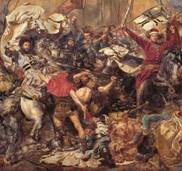 |
An article by Jon Platakis |
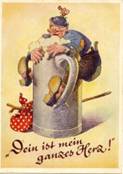 |
Bernard Terway: |
 |
Dr. E. Reilly: |
 |
Jon Platakis: |
 |
B. Kolubinski: |
 |
Vytautas Sliupas: |
 |
Vytautas Sliupas: |
 |
Boris Bakunas: |
 |
Ruta Lee: |
 |
Angele Jureviciene: |
 |
Vijole Arbas: |
- Bookmark :
- Digg
- del.icio.us
- Stumbleupon
- Redit it
- Posted by - (1) Comment
Where are the new ideas for Lithuania?
|
|
|
|
1200sKing Mindaugas’ grand idea was to found the Lithuanian State!Lithuania’s only king is also credited with stopping the advance of the Tatars towards the Baltic Sea and Europe, establishing international recognition of Lithuania, and turning it towards Western civilization. |
|
|
1300sGrand Duke Gediminas’ idea was to found Vilnius as one of the World’s leading and tolerant citiesGediminas was also the true founder of ‘The Grand Duchy of Lithuania’. He was a man of extraordinary knowledge and wisdom, offering free access into Lithuania to Europeans of every order and profession. |
|
|
1400sVytautas the Great’s idea was to expand‘The Grand Duchy of Lithuania’ to the Black SeaVytautas the Great was the Grand Duke expanding the Grand Duchy‘s frontiers from the Baltic Sea south to the Black Sea and thereby creating the by then largest country in Europe. The Grand Duchy was at its largest by the middle of the 15th Century. |
|
|
1500sSigismund the Old’s idea was to connect Italy and Lithuania, with the help of Leonardo da Vinci!When Lithuania’s Grand Duke, Sigismund the Old in 1518 married the Italian Princess Bona Sforza, this became an outstanding manifestation of the already strong relationship between Italy and Lithuania. The royal couple created together an Italian community within the court and Italian culture became the preoccupation of the Vilnius city elite. |
|
|
1700s
|
|
|
1875-1911Čiurlionis’ idea was to describe Lithuania’s soul in his art and musicDuring his short life Lithuania’s national composer and painter, Mikalojus Konstantinas Čiurlionis, composed about 250 pieces of music and created about 300 paintings. His works have had a profound influence on modern Lithuanian culture. |
|
|
1918Antanas Basanavičius’ grand idea was to reclaim independence for LithuaniaAs a member of the Council of Lithuania he was a signer of the Act of Independence of Lithuania on the 16th of February 1918 (signed in the building at the picture to the left). Basanavičius is often given the unique informal honorific title of the "Patriarch of the Nation". |
|
|
1918-1940President Antanas Smetona had the idea of again making Lithuania a successful, remarkable nationSmetona was undoubtedly Lithuania’s most importantpolitical figure between the two wars. He served as President from 1919 to 1920, and again from 1926 to 1940. Smetona was also one of the famous ideologists of nationalists in Lithuania. The country was truly flourishing under his presidency. |
|
|
1945-1990Lithuanians who were forced to leave their home country had the idea of keeping on fightingThe post World War II wave of Lithuanian immigrants experienced a surge of Lithuanian consciousness. They saw themselves as exiled communities and clung to their memory of two decades of freedom in Lithuania. They also made numerous efforts to support Lithuania’s freedom fight. |
|
|
1945-1990Lithuania had the idea to improve its infrastructure even during Soviet yearsDespite huge post war difficulties, Lithuania managed to build around 450 km of four-lane motorways from Vilnius to Klaipėda and Panevėžys. Result? Lithuania got the best roads in East Europe! At the same time Klaipėda port was developed as a leading Baltic transport hub, connecting East and West.. |
|
|
1960-1990Despite the oppression, Lithuanian experts had the idea to make Lithuania the Soviet Silicon ValleyStill today Lithuania is a world leading exporter of femtosecond lasers. Among the clients is NASA, using Lithuanian laser technology for analyses of minerals on Mars! A country of 3.2million people, Lithuania, has about 15 laser producers, employing about 300 laser specialists! |
|
|
1988 – 1991Professor Vytautas Landsbergis had the idea that his masses of unarmed Lithuanians could win over the mighty Soviet army
|
|
|
1990 – 2010Post Soviet Lithuania’s sport and culture had the idea to remain on world levelI let two of the most prominent figures within these fields represent the fantastic flora of ideas and pure guts sport and culture is playing for Lithuania; Music Professor Donatas Katkus (left) and former basketball player Arvydas Sabonis. Remarkable!! |
|
|
2000 – 2010The idea of Vilnius Mayor Arturas Zuokas’ was to build Lithuania’s Manhattan, the new office districtVilnius’ Mayor, Arturas Zuokas, earned his place in Lithuania’s history with his energetic efforts to build a new skyscraper city within the city. |
|
|
2012 – 2020President Dalia GrybauskaitėPrime Minister Andrius KubiliusPlease let us know what are your ideas and visions for the future development of Lithuania.NEW IDEAS, NEW SPIRIT IS VERY MUCH NEEDED! |
- Bookmark :
- Digg
- del.icio.us
- Stumbleupon
- Redit it
- Posted by - (0) Comment
New concept for seniors, planned in Vilnius
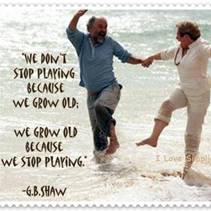
A new concept for senior apartments, with focus on warmth, dignity and joy. Custom apartments around an outdoor, enclosed patio - plus a large, common 'lobby' for food, reading, music, good talks, therapy, training and more.
This is what now might be develop in the outskirts of Vilnius, about 20 minutes drive from the Old Town and less than five minutes from the Le Meridien Hotel, with its beautiful pool, spa complex, and a great new 18-hole golf course.
The plan they have under consideration right now is to build an elegant senior complex on the site, for potential buyers both in this country and from abroad.
Quality and service will be very high, still at prices one can hardly dream of the United States, Western Europe or Australia.
The planned complex will consist of around 50 apartments and a large public centre-building that can best be compared with an international hotel lobby.
All apartments and common areas will be wheelchair accessible. The latest of 'welfare technology' will be installed, and there will be an extensive range of health care measures, safety, activities and a good, warm relationship with other seniors in similar circumstances.
If sufficient interest from potential buyers, the project is expected completed in 2014.

When will this project be completed? What provisions will there be for handicapped, when we grow older and unable to participate in sports or other activities?
Vytas
_________________________
Sounds like a great project
It sounds like a great project hope to hear more about it.
Irene
_________________________
I think something like that could be very welcome
Actually, I think that something like that could be very welcome. What it will need is an inexpensive and convenient form of transportation to and from Vilnius center and old town. So, I hope that the organizers will think about that. Today, it is quite expensive to get to Le Meridien Hotel and the hotel shuttle bus only goes as far as the White Bridge for some strange reason. Public bus is just to going to be acceptable for residents. A taxi ride costs over 100 lita round trip today and that will be much higher by the time this opens.
Without a convenient, affordable form of transport, residents will feel very isolated out there. With that problem solved, I could see a good interest in it.
Gene
_________________________
Many "seniors" prefer to not be alone. They are still active "seniors," and a place like this offers safety, security, a sense of community
Many "seniors" prefer to not be alone. They are still active "seniors," and a place like this offers safety, security, a sense of community, and if I were anywhere near retirement age, I would surely consider such a residence!!! Great Idea!!! :)
Jenifer

- Bookmark :
- Digg
- del.icio.us
- Stumbleupon
- Redit it
- Posted by - (1) Comment

Absolutely awesome little campaign bringing friendliness to Vilnius

Mark SPLINTER

LGBT friendly Vilnius
Vilnius' spots that aren't afraid to declare they're LGBT friendly
By: LGBT friendly Vilnius

Grant Gochin Is it safe for people to be out there?

Mark SPLINTER it's safe in the tourist areas, the sticker is about celebrating and advertising the friendliness that already exists. But even in the tourist areas a gay kiss causes a scandal and if some knucklehead sees it then you might get into some trouble. also there are some horrible violent comments on the internet, but that's inevitable.

Rimas Pileika What is? Store, bar?

Hannah Shipman Something positive for tolerance.

Mark SPLINTER so far, restaurants and bars are participating. Latest news - the council have invoked a law - You have to put the sticker on the inside of the door not the outside. This law doesn't seem to be enforced very strictly against other door stickers. Anyway they will just change the stickers to inside and that's all.

Hannah Shipman Cafes and restaurants are displaying stickers to indicate that they are LGBT (lesbian, gay, bisexual and transgender) friendly. It is refreshing to hear something positive on this subject rather than the tirades of Petras Gražulis.

Mark SPLINTER
https://www.facebook.com/lgbtfriendlyvilnius

LGBT friendly Vilnius
LGBT FRIENDLY VILNIUS - spontaneous social cause aimed to make Vilnius a better place. ; ]

Kenny Kaunas Sweet! DJs and a beer garden, perhaps?

Grant Gochin It's a pity that people have to put up signs saying they are NOT homophobes.
- Bookmark :
- Digg
- del.icio.us
- Stumbleupon
- Redit it
People who think that those who left Lithuania had a comfortable life, are sadly mistaken
- Posted by - (6) Comment

Rūta Bražiūnienė
HEALING WOUNDS BETWEEN LT-AMERICANS AND HOMELAND LITHUANIA
Our debate topic in VilNews Forum, with the above headline, has now attracted more than 200 comments. Here is one of the posts, written by Rūta Bražiūnienė:

While I noticed that the above 156 comments argue about passports, I just have an issue with the first post, that I have not noticed be addressed, yet. "Many here in Lithuania still believe that those who left, whether for economic or political reasons, had very comfortable lives compared to those who stayed behind and had to fight through several decades of inhuman oppression and abuse by the Soviet occupiers."
I totally assume, based on my own previous experience, that people who think that those who left Lithuania had a comfortable life, are sadly mistaken. My parents fled within hours of occupation. They saw close relatives, neighbors, friends be killed by Soviets. They fled to save their lives.
It's hard not to generalize, as we all seem to do that quite well. That generation, who had to make decisions to flee, thought that they would be back in days. Then weeks. Then months. And before they knew it, years passed. They lived in DP (displaced person) camps. There was no luxury there.
The horrors of the Soviet oppressors made them band together, to lobby their politicians, start Lithuanian schools, cultural dance and song groups, and anything they could do to keep the memory of their Lithuania alive. (Estonians and Latvians were in the same situation).
I can vouch for many in my generation, that we were shocked at the devastation of the Baltic lands when we visited decades later. We had heard of a paradise Lithuania our entire lives, and visiting it - was... well, a rude awakening.
Sure, they over-generalized, too. But we banded together, Baltics displaced by WWII all over the world, and continued our parents' traditions, and did what we could to help free the Baltic States. Our parents never had it easy. They worked two jobs, not in their educated field, and suffered a different way, than their brothers and sisters who remained. They sent most of their pay, clothes, food, just to help those whom they could.
Luckily, some made a good life for themselves. But many more tried what they could just to make ends meet.
So when Lithuania was freed, imagine our surprise when there is this almost hatred for those who left. We were just happy to be reunited, or for others, seeing the relatives our parents no longer could.
Nobody had it easy. I wish that those left to grow up under Soviet rule would understand that.
The only thing that would have happened, had our parents not fled, is that they, too, would have been killed by the Soviets.
With all of this contempt, crime, and mostly - lack of acceptance - who would want to move back, only to be labeled, mugged, robbed, humiliated, etc? It's not easy for anybody, folks. We all agree that the Soviets destroyed families, hope, land, etc. What good does arguing about who had it worse do?
We need to move forward. We can't change the past. So all we can do is work towards one goal of acceptance. Please.
- Bookmark :
- Digg
- del.icio.us
- Stumbleupon
- Redit it
- Posted by - (1) Comment
The book, "1939, The Year that Changed Everything in Lithuania's History” reveals the unflattering response by the top leadership, their abdication, and flight from the nation, leaving the population defenseless... without any responsible and effective resistance… as if independence never happened
 Book author: Sarunas Liekis |
 Tony Mazeika |
In a comment to our VilNews article series "Lithuania and the Soviet Union 1939-1940" ( Section 10 - HISTORICAL LITHUANIA) Tony Mazeika from Mission Viejo in California writes the following:
"It is necessary to read the full account of Lithuania's leadership response to Soviet demands and occupation in 1940. The book, "1939, The Year that Changed Everything in Lithuania's History", Arnas Liekis, reveals the unflattering response by the top leadership, their abdication, and flight from the nation, leaving the population defenseless...without any responsible and effective resistance. It's as if independence never happened. Lithuania, together with Latvia & Estonia, make no formal military resistance knowing that Finland fought in 1939-1940 and survived a Soviet onslaught. Much more need to be disclosed about those "patriots" who chose to run rather than fight for their nation."
-----------------------------------------------------------------------------------------------------------------------------------------------------------------
Our VilNews Associate Editor, Vin Karnila, has edited the four articles we have presented on the topic "Lithuania and the Soviet Union 1939-1940" from the personal memoirs of Juozas Urbšys. Here is his response to Mr. Mazeika's commentary:
Easy to say that they should have organized formal Military resistance – and get slaughtered
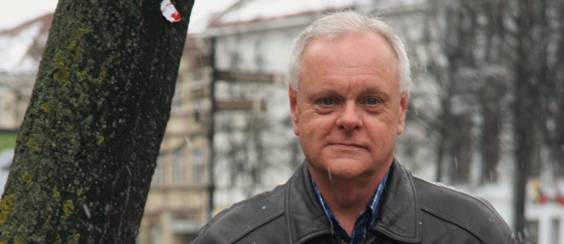
Vin Karnila
I would like to thank you Mr. Mazeika for sharing your thoughts with us and making us aware of what I'm sure is a very interesting book written by Arnas Liekis.
You bring up a topic that has been discussed many times throughout the years following 1940. The members of the Lithuanian delegation that were involved in the negotiations with Russia have always claimed that they knew that Russia at any time they chose could have invaded Lithuania. They also felt that if Russia did in fact invade, whether there was organized military resistance or not, this would result in catastrophic consequences for Lithuania and its people. Throughout the negotiations they said that what they were trying to achieve was the best possible outcome for Lithuania. In the end what they achieved was the best possible outcome that Russia would allow.
The topic of the courageous people of Finland and their organized military resistance to Russia's invasion of their homeland in relation to the fact that Russia's invasion of Lithuania in 1940 occurred without a shot being fired has also been discussed many times. The question remains how much did Lithuania know or did not know about Finland's armed resistance to Russia in what is known as the "Winter War"?
3 October 1939 the Lithuanian delegation flew to Moscow to begin the negotiations with Russia. 30 November 1939 Russia attacked Finland to begin the "Winter War". By March of 1940 both sides began to negotiate a peace treaty. Did Lithuania know that in spite of the great courage of the Finns the primary factor in Finland's success was that the Winter War was fought in some of the harshest of winter weather conditions and in equally harsh terrain? This harsh terrain the Finns knew like the back of their hand and the weather conditions to them was normal winter weather? Did Lithuania know that if Russia attacked across the gentle rolling hills and flat farmlands of Lithuania in spring or summer that the advantage of weather and terrain, that so greatly helped the Finns, would only make Russia's evil task easier? An invasion of Lithuania by Russia in the spring or summer of 1940 would have been a military situation completely the opposite of the Finland's and Russia's Winter War. Did Lithuania know that whatever peace agreement Finland and Russia came to that it would end up being short lived? Had Lithuania taken notice of the fact that no Western power had come to Finland's aid with any meaningful support? From all reports, Lithuania realized that their Military, no matter how courageously they fought, was no match against the might of Soviet Russia's army.
Many comments have been made and questions asked about the large number of government and Military top officials that left after 15 June 1940. Why didn't they stay? Why didn't they stay and resist? How could they leave their homeland? I would say that the real answers to these questions can only be answered by these top officials that left. Some left almost immediately as if they knew what would happen once Russia occupied the country. Others left after they saw what Russia was doing now that they occupied the country. In fact many people that had the means to do so left once they understood what their future would be at the hands of Russia.
All these questions to all these situations I have asked myself over and over. Again and again I come to the conclusion that more than seventy years after these events occurred, while I'm sitting in the comfort of my home and while I can walk the streets of Vilnius without (for the time being) having to worry about being run over by a Russian tank, shot by a Russian soldier, kidnapped by the NKVD, put in a gulag or executed, I am really not in a position to judge people who were trying to do the best they could for our country and simply trying to survive during very difficult and dangerous times. I guess it could be kind of easy for some to say that they should have organized formal Military resistance – and got slaughtered. It could also be easy for some to say that the top officials and the people of means should have stayed – and got executed, imprisoned, put in gulags or sent to Siberia. Personally I can't judge these people for their actions because I wasn't alive then and I wasn't involved in these dangerous and difficult times. I also refuse to be a "Monday morning quarterback" and go on and on talking about all of the "should haves" for the same reasons I just stated. The opinions of others about these matters though are something I am very interested in.
Having said all this I must say that the discussion of what happened, what did not happen, why it did happen and why it didn't happen during these times are matters that will continue to occupy my thoughts – I'm still trying to understand and make sense of all of it. Again I would like to thank you Mr. Mazeika for sharing your thoughts with all of us and I would also like to thank you for letting us know about the book by Arnas Liekis - 1939, The Year that Changed Everything in Lithuania's History. I'm sure that I am not the only one out there looking for more information about this period of Lithuania's history and I'm sure that I'm not the only one looking for more information about this so that I can try to make more sense of everything.
Dear readers, I'm sure that Mr. Mazeika and I are not the only ones out there that are interested in what happened during these times and we are not the only ones with opinions. We would please invite you to share information and your opinions on this topic with all our readers throughout the world. I'm sure this is something we all are trying to understand better.
Su pagarbe
Vin Karnila
Associate editor
---------------------------------------------------------------------------------------------------------------------------------------
Aleksander Stulgisnkis, Lithuania’s President between 1921 and 1926, decided to stay in his homeland even when the Soviet’s attacked in 1940... He paid a high price...
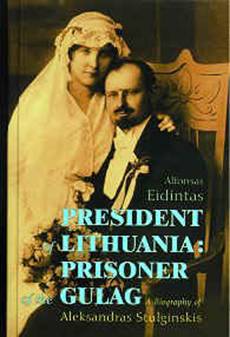
Cover of the book by Dr. Alfonsas Eidintas, “President of Lithuania:
Prisoner of the gulag (A biography of Alexander Stulginskis).”
Aleksandras Stulginskis, the first constitutional president after Lithuania had declared its renewed independence on 16 February 1918, was kidnapped at his home by Stalinist forces in June 1941 and deported to a Siberian Gulag. After he was released from the inhuman captivity, he was still for years forced to live in Siberia’s deep forests, until 1956.
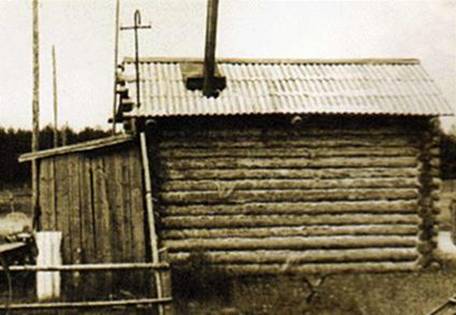
Lithuania’s President Aleksandras Stulginskis built this Siberian log cabin by his
own hands, living here with his wife Ona until 1956.
How could it be that a former head of state of a free and independent country could be kidnapped in his own home and taken around half the globe to imprisonment in a labour camp where cruelty and inhumanity were the principal characteristics?
How could it be that the rest of the world chose to ignore such an assault against a splendid leader who proudly had been fighting for democracy and independence in a nation that before the Second World War was fully on par with its neighbours in Scandinavia and Northern Europe, both economically and as an independent state?
Just think of what would have been the reactions from the international community if one of the other state leaders from the 1920s had become victims of such a cruel abuse?
Read more at https://vilnews.com/?p=6539
- Bookmark :
- Digg
- del.icio.us
- Stumbleupon
- Redit it
- Posted by - (0) Comment
Cultivating Lithuanian unity world-wide:
What YOU can do!

Boris Vytautas Bakunas
By Dr. Boris Vytautas Bakunas, Ph. D., Chicago
A wave of unity swept the international Lithuanian community on March 11th as Lithuanians celebrated the 22nd anniversary of the Lithuanian Parliament’s declaration of independence from the Soviet Union. However, the sense of national unity engendered by the celebration could be short-lived.
Human beings have a strong tendency to overgeneralize and succumb to stereotypical us-them distinctions that can shatter even the strongest bonds. We need only search the internet to find examples of divisive thinking at work:
”50 years of Soviet rule has ruined an entire generation of Lithuanian.”
”Those who fled Lithuania during World II were cowards -- and now they come back, flaunt their wealth, and tell us ‘true Lithuanians’ how to live.”
”Lithuanians who work abroad have abandoned their homeland and should be deprived of their Lithuanian citizenship.”
Could such stereotypical, emotionally-charged accusations be one of the main reasons why relations between Lithuania’s diaspora groups and their countrymen back home have become strained?
As psychiatrist Dr, Aaron T. Beck and others have noted, accusatory remarks are often perceived as threats by those targeted for verbal attack. Recriminations follow and escalate into verbal shooting matches that solidify hostilities between individuals and groups that previously enjoyed friendly relations.
Although debate is an inevitable and even desirable characteristic of free democratic societies, inflammatory finger-pointing can undermine a country’s national cohesion, political stability, and economic development. As individuals, what can we do to curb the spiral of anger-promoting speech that has surfaced within the world-wide Lithuanian community?
Comments

Jon Platakis
A poignant article that touches on the root causes of bias and discrimination. Throughout Lithuanian history, the Lithuanian people showed unity, determination and resiliency to overcome 200 years of foreign occupations that, once again, resulted in a free and sovereign nation. Today, it is only through unity, determination and resiliency by Lithuanians, in Lithuania and abroad, that Lithuania can move forward and reclaim her place on the world stage.
Although, physically, Lithuanians may live oceans apart, pushing each other further away only hinders the progress of the Lithuanian nation. As this article points out, cultural promotion and exchange between all Lithuanians can solidify and preserve our national identity. Organizations, such as, the National Lithuanian Hall of Fame, and the newly established Lithuanian-American Theater "Viltis" seek to promote Lithuanian culture in America, and at the same time, reach out and recognize achievements of Lithuanians in Lithuania.
One only has to look at history to learn that peoples united for a purpose or cause will always achieve their goals.
![]()
Sandy
Very interesting
![]()
Mary Ellen Lloyd
Why would there be ANY political differences among Lithuanian-Americans, at least for those over age 40 who are fully Lithuanian?? Do actual Lithuanians who lived under communism support any party which proposes to do the same thing to America that Russia did to Lithuania?? HOW can there be political divisiveness among Lithuanians who were old enough to witness the terrors and the gulags?
![]()
Boris Bakunas
One of the outstanding features of VilNews is how it publishes articles highlighting the achievements of Lithuanians around the world as well as the harsh realities of the past.
In 2011, two highly-acclaimed novels about the horrors of Soviet oppression were published. "Between Shades of Gray" by Ruta Sepetys told the story of a fifteen-year-old girl who along with her family was exiled to Siberia. Both hard-cover and paperback editions of "Between Shades of Gray" hit the New York Times best-seller list..
Antanas Sileika's novel "Underground" depicts the armed resistance of the Lithuanian partisans against the Soviet invaders and their collaborators. "Underground's" Lukas, is based on Lithuania's most famous partisan, Juozas Luksa--Daumantas. :"Underground" was picked as on of the best novels in English published in 2011 by The Globe and Mail. I have heard that the United States edition of Sileika's novel will be published within a few weeks.
2011 also saw the publication of Ellen Cassedy's book "We Are Here," which recounts the author's personal quest to understand how the people of Lithuania -- Jews and non-Jews -- are dealing with the horrors of the Nazi and Soviet past in order to build a new and better future. Ellen was inspired to write her book when her uncle, a Holocaust survivor, gave her a slip of paper and said, "Read this."
All three books, written by children of Lithuanians who escaped execution or exile, are helping to acquaint English-speaking public with one of the most tragic and heroic periods of Lithuanian history. They will also help educate a new generation of Lithuanians about the long suppressed history of Lithuania during and after World War II.
I am very happy that The National Lithuanian Hall of Fame is playing such an active role in helping to publicize all three books. This new organization has already donated more than five thousand dollars to help Lithuanian film director Tomas Donela secure the film right to "Underground." It is also making great progress in getting "Between Shades of Gray" on the reading lists of American schools and doing all it can to promote "We Are Here."
How can there be any divisiveness among Lithuanians in regards the terrors of the Gulag and the Holocaust? I don't have an answer to that question. I only know that during my own long life I have encountered several. I've spoken to and interviewed Lithuanians who collaborated with Nazis and with Soviet Communists. I've heard expressions of anti-Semitism, and I've heard several Lithuanians express nostalgia for the "good old days" under Communism. Probably, I'll never fully understand the dark side of human nature. But I also spoke to former partisans, political prisoners, and those who endured Siberian exile. My hope is that as individuals we do all we can to overcome hatred in word and in deed and help each other when we can.
In this endeavor, perhaps we can learn from the example set by South Africa's Truth and Reconciliation Commission. As Archbishop Desmond Tutu has said, "“Forgiving is not forgetting; its actually remembering--remembering and not using your right to hit back. Its a second chance for a new beginning. And the remembering part is particularly important. Especially if you dont want to repeat what happened.”
Post a new comment
- Bookmark :
- Digg
- del.icio.us
- Stumbleupon
- Redit it
- Posted by - (0) Comment
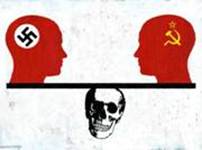 “DOUBLE GENOCIDE” |
The "Double Genocide theory" is a concept about the equality of the Holocaust and Communist crimes against humanity. The term was used by associate professor of political science Dovilé Budryté in 2004 in a study of Lithuanian memory politics with regard to Soviet and Nazi repression, where the view held by a segment of that country since before the restoration of independence in 1991 was that Lithuanians similarly suffered genocide under Soviet rule. Recent critics of this Lithuanian viewpoint, Dovid Katz and Efraim Zuroff, have argued that the country has presented a false “double genocide” thesis and its argumentation obfuscates the Holocaust.
------------------------------------------------------------------------------------------------------------------------------------------------------------------------
 Roger Cohen |
 |
‘The Suffering Olympics’
By ROGER COHEN
Published: January 30, 2012
VILNIUS, LITHUANIA — The “double genocide” wars that pit Stalin’s crimes against Hitler’s are raging in wide swathes of Europe and every now and again along comes a gust from the past to stoke them. The 70th anniversary this month of the Nazi adoption at Wannsee of annihilation plans for the Jews provided one such squall.
Yes, the past is still treacherous beneath Europe’s calm surface. Memory swirls untamed in the parts of the Continent that the American historian Timothy Snyder calls “Bloodlands,” the slaughterhouses from Lithuania to Ukraine that Hitler and Stalin subjected to their murderous whim.
To mark the Wannsee anniversary, over 70 European Parliament members, including 8 Lithuanians, signed a declaration objecting to “attempts to obfuscate the Holocaust by diminishing its uniqueness and deeming it to be equal, similar or equivalent to Communism.” It also rejected efforts to rewrite European school history books “to reflect the notion of ‘double genocide.”’
All of this was too much for the Lithuanian foreign minister, Audronius Azubalis, a conservative, who blasted the Lithuanian social democrat signatories as “pathetic.” His spokeswoman declared that the only difference between Hitler and Stalin was the length of their mustaches. She said legal qualifications of the crimes they committed were “absolutely the same”: genocide, war crimes and crimes against humanity.
------------------------------------------------------------------------------------------------------------------------------------------------------------------------
Three major flaws mar
Mr. Cohen’s attempt

Boris Bakunas
By: Dr. Boris Vytautas Bakunas, Ph.D.
"Mr. Cohen may appear to make a sincere effort to present a balanced view in his article; however, three major flaws mar his attempt. First, the article is based on the logical fallacy of false dichotomy, also known as the either-or fallacy. Second, the scales of balance in Mr. Cohen’s presentation waver as a result of his failure to present all the relevant facts related to the establishment of The Museum of Genocide Victims in Vilnius. Finally, Mr. Cohen obfuscates two crucial terms: Holocaust and genocide.
------------------------------------------------------------------------------------------------------------------------------------------------------------------------
- Bookmark :
- Digg
- del.icio.us
- Stumbleupon
- Redit it
- Posted by - (3) Comment
The land of smiles
or tears?
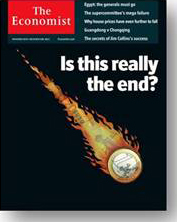 The Economist’s (London) image shows the euro as an asteroid, plummeting to earth. |
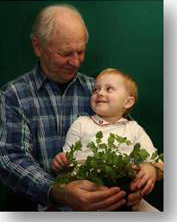 The editor's photo was meant to illustrate that humanity has a bright future ahead. |
In the recent issue of VilNews I wrote that I do not share the pessimists gloomy predictions for the world's future, as I think the crisis is part of a necessary cleansing process. I am optimistic because I see that a whole new type of people is coming. New leaders. Many of today's children and young people.
What I see is forward-looking youngsters with good balance within themselves and their 'other dimension'; their divine origin.
I believe that ‘The land of smiles’ is under development. That new kids, a new human type, seem to have come to Earth with a special mission: to assist the Earth and its inhabitants in the transition and the 'rebirth' as a planet with higher awareness and better interpersonal understanding.
Aage Myhre
Editor-in-Chief
You are all welcome to participate in this discussion!
 |
Many believe that we will be entering the Age of Enlightenment within the next five years… Others believe that we have already begun to make this transition The time has come for us to move past the illusion of separateness Rather than judge one another, we teach our clients to go beneath the surface of a behavior that differed from their own to find deeper meaning. This led to under-standing and acceptance, more productive negotiations and perhaps even a shared knowing. When leaders and citizens remember to appreciate the Three Points of Connection, everything else will fall into place. We will know, from deep within, that to care for our environment is not only a privilege but natural because as we care for the earth we care for ourselves. We will know that going beyond boundaries of difference and age-old conflict enables us to make peace with our neighbors and co-create a world where children live happily and healthfully. And, when we return to source as the partner in creating our world, we will not falter in our ability to move towards a positive future that is inclusive of all sentient beings, as the great mystical traditions teach. Gather small groups in your organization and begin to listen deeply to each other. Better yet, take a walk outside and commune with Nature. Give thanks for the beauty that surrounds you and take time to smell the roses. All things will go smoother from there. Jurate Kutkus Burns, Florida. |
 |
You brighten up my day A very interesting article with a lot of insight regarding divinity and where we are heading, in this cosmic time of transmission to the age of Aquarius! You brighten up my day with very positive forecast. Hans Gyllenhammar, Swedish Ministry for Foreign Affairs. |
 |
The next generation will have a healthier more sustainable future because of the massive restructuring and pain we will have to endure in this past generation |
 |
We fear that without urgent action by the ECB, the euro will crash, doing untold damage not just to Europe but to the entire world economy Denial is not just a river in Egypt! Dr. Val Samonis, |
- Bookmark :
- Digg
- del.icio.us
- Stumbleupon
- Redit it
- Posted by - (3) Comment
Holocaust in Lithuania
Some time ago a reader in the USA wrote the following one-sentence ‘letter’ to the editor of VilNews:
"May Lithuania rot in hell for a 1000 years."

This ‘letter’ resulted in several posts and comments from our readers around the world. We in the editorial team have been very impressed by how informative and balanced most of the posts have been. Probably it is this kind of open, intelligent debate that is needed to build bridges across the gap that emerged in the relationship between Jews and Lithuanians during and after World War II. We thank all who participate, not least the following four: Olga Zabludoff, Donatas Januta, Didier Bertin and Yves Plasseraud:
- Bookmark :
- Digg
- del.icio.us
- Stumbleupon
- Redit it
“Facing History: The Burden of 1941”
- Posted by - (4) Comment
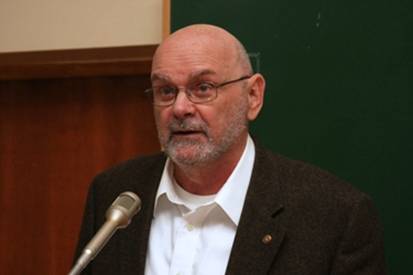
Dr. Saulius Suziedelis.
Scholar of Lithuania’s Holocaust history.
Photo: www.komisija.lt/lt/naujiena.php?id=1301995164
By Ellen Cassedy
“The only way for Lithuanians to lighten the difficult history of 1941 is to embrace it.”
The writer of these words, Dr. Saulius Suziedelis of Millersville, Pennsylvania, USA, will be honored in Vilnius on November 18, 2011, by the Lithuanian Ministry of Education and Science.
Also receiving awards will be Dr. Vytautas Cernius, a longtime professor of education at Temple University in Philadelphia, Pennsylvania, and Dr. Arvydas Kliore, a space scientist with NASA. The prizes for intellectual achievement are awarded annually to Lithuanians living abroad.
Dr. Suziedelis is a leading voice in the field of Holocaust scholarship. In his groundbreaking essay, “The Burden of 1941,” published in 2001 in Lituanus, the Lithuanian quarterly journal of arts and sciences, he encouraged Lithuanians to face the fact that more than 90 percent of the country’s 240,000 Jews were killed between 1941 and 1944, and that thousands of Lithuanians participated in the Holocaust.
“Recognizing a historic burden is not the same as accepting collective guilt,” Dr. Suziedelis cautions in his essay. “No honest person argues that Lithuanians are a nation of criminals, or that today's Lithuanians are responsible for what happened in 1941 (any more than contemporary Americans are responsible for slavery). But the legacies of such crimes, the historical burdens, remain.”
Born in Germany at the end of World War II to parents who came from Kaunas, Dr. Suziedelis grew up in Brockton, Massachusetts, speaking Lithuanian at home and attending a bilingual parochial school.
He acquired a Ph.D. in Russian and Eastern European history in 1977. In the 1980’s, while working at the U.S. Department of Justice, he came to recognize how little he knew about what had happened during World War II in Lithuania. “The rest of my country, except for the killers, knew even less,” he said. “I realized a lot of research had to be done.”
Delving into the vast archive documenting the 1941-1944 administrative structure of the Nazi occupation – at least a million pages, he estimates – he educated himself and began to publish widely in Lithuanian venues.
Stepping into this historical terrain was not easy. “You fight to not believe people of your culture committed horrible crimes.”
“With good reason,” he writes, “both Jews and Lithuanians consider themselves victims of the Second World War. There is no need to question that status.”
Yet, he goes on, “many Lithuanians and Jews remember this tragic history, especially the first weeks of the Nazi-Soviet war, from perspectives so opposed that sometimes it appears they cannot possibly be reflecting on the same events.”
More ethnic Lithuanians were killed after the war, during the pokaris, or postwar period, than during it. From 1945 to 1950, Dr. Suziedelis estimates, for an ethnic Lithuanian, the statistical chances of dying a violent death were about ten times higher than during the war.
The tug of war between two histories has led to a syndrome of “competing martyrologies,” Dr. Suziedelis notes, and this is unfortunate.
Soviet and Nazi crimes in Lithuania “didn’t occur on different planets,” he says. “There are striking similarities between the two systems. But that doesn’t mean they are equivalent. And you certainly can’t use one system’s crimes to excuse the atrocities of the other.”
Each history is unique, he stresses. “There are similarities and differences,” gray areas and difficult conundrums. What comparisons can be made between the Soviet and Nazi crimes? Lithuania’s 20th century history is complex, Dr. Suziedelis says. “You cannot fit it into a sound bite. I struggle with it.”
If Lithuanians are to “own their own history,” he believes, they must do three things:
- view Jewish history as part of Lithuanian history as a whole. “In the past,” Dr. Suzedelis says, “Jews wrote about Jews and Lithuanians wrote about Lithuanians.” Today, this is changing. An increasing number of ethnic Lithuanians are studying Jewish history.
- understand the Holocaust as the central event of the Nazi occupation. “The genocide of the Jews constitutes the greatest single atrocity in modern Lithuanian history.”
- assess Lithuanian participation in that event “without evasion, without squirming.”
Dr. Suziedelis is the author of numerous studies about Lithuanian history, and since 1998 has served on the International Commission for the Evaluation of the Crimes of the Nazi and Soviet Occupation Regimes in Lithuania. From 2006 to 2010 he chaired the Annual Conference on the Holocaust and Genocide at Millersville University in Pennsylvania, USA, where he is a professor emeritus.
In February, he participated in “No Simple Stories: Jewish-Lithuanian Relations between Coexistence and Violence,” an international conference sponsored by the Institute of Jewish Studies, University College London. In the spring, he delivered a series of lectures at Vytautas Magnus University in Kaunas on genocide and mass murder in the 20th century. He is currently at work on an essay about Polish-Lithuanian relations.

Ellen Cassedy traces her Jewish family roots to Rokiskis and Siauliai. Her book, We Are Here: Memories of the Lithuanian Holocaust, will be published in March of 2012. She lives in Washington, D.C. Visit her website at www.ellencassedy.com.
- Bookmark :
- Digg
- del.icio.us
- Stumbleupon
- Redit it
- Posted by - (1) Comment
Other responses to the 26 October comment from Mr. Januta
![]()
FROM: Alexander (26 October)
Well said. I just wish those who write about Lithuanian-Jewish relations and blame all Lithuanians for the killing of Jews, would get their true facts before writing.
![]()
FROM: fdfdg (26 October)·
An outrageous pack of lies.
The Jews in Lithuania were murdered by ethnic Lithuanian volunteers. Lithuanians are still trying to hide this fact after 60 years, from themselves, their children and now they are attempting to impose this false history on the world at large. Dov Levin isn't positing double genocide, there is no equals sign there. "Double genocide" is not the name the Lithuanians give to their own policy of Holocaust obfuscation, but it's an accurate name. The number of Lithuanian perpetrators is in the tens of thousands, and those are just the active shooters. If you want to get into passive support for genocide, it's much higher. There was no specifically Lithuanian Waffen SS, because the Lithuanians created their own pro-Nazi formations before the Nazis got around to it, TDA, LAF etc etc. and these forces were involved in the Holocaust in Poland, Ukraine, Belarus and elsewhere, besides their native Lithuania. The author is obviously fooling himself into thinking it's possible some Lithuanians were fooled into it at German direction, but the LAF was a Lithuanian organization, not a German one, and their underground cells of ethnic Lithuanians inside Lithuania (LAF was pretending to be the government in exile in Berlin) got the orders from HQ: prepare to slaughter your Jewish neighbors as soon as Soviet-German hostilities break out. Didier Bertin's point concerning the supposed Soviet genocide of Lithuanians was not that some Lithuanians survived, it was that not only did the vast majority survive, their population actually increased during the supposed genocide. This is an outrageous pack of lies by another Lithuanian Holocaust obfuscator.
![]()
FROM: Richard Vitkauskas (26 October)·
Excellent article Donatas. Many thanks
Mr. Januta’s response
![]()
FROM: Donatas Januta (27 October)·
Dina Porat, a respected Israeli historian estimated that the total number of Lithuanians, involved directly and indirectly, in the German organized killing of Jews was up to 15,000, i.e., about 0.5% of the population
For those who may want a little perspective on fdfdg’s preceding comment. He states that my article is “an outrageus pack of lies”, and specifically he then says: “The number of Lithuanian perpetrators is in the tens of thousands, and those are just the active shooters.” Dina Porat, a respected Israeli historian estimated that the total number of Lithuanians, involved directly and indirectly, in the German organized killing of Jews was up to 15,000, i.e., about 0.5% of the population. And Arunas Bubnys, another historian, has estimated that those directly involved, i.e., what fdfdg refers to as “the active shooters”, was somewhere between 2,000 and 3,000. But according to Mr. or Ms. fdfdg, both of these historians are just liars. Judge for yourselves the rest of fdfdg’s remarks.
- Bookmark :
- Digg
- del.icio.us
- Stumbleupon
- Redit it
Historians in the West don’t think that the Baltics and their people are important
- Posted by - (0) Comment

Dominican Father David O’Rourke, one of the two priest producers of “Red Terror on the Amber Coast.” Father O’Rourke is director of The Tatra Project (www.tatraproject.org), which provides educational resources and media on life under the former Soviet Union.
I lived and worked on and off in Vilnius, from 2000 until about 2009. Part of my work involved research in the film and photo archives that led to the documentary film, Red Terror on the Amber Coast. I was the writer and producer. I have only one point I want to make here, but I think it is important.
From the time that the Soviets first occupied the Baltics after the Molotov-Ribbentrop Pact until the fall of the Soviet system, essentially all the information about life in the Baltic Republics came from the occupying governments – Soviet and Nazi. Occupiers have their own agenda. Telling the truth about what they were doing in the countries they occupied was not one of them. To the contrary, both the Soviets and the Nazis were expert in producing self-promoting propaganda. So I believe it is both naïve and foolish to look to news and information reports produced by either of these regimes about the occupation years as though they were reliable. My own view is that relatively little concerning life during these years is known today outside these countries and their several diasporas. And very little is known because historians in the West don’t think that the Baltics and their people are important enough to their own studies to worry about.
David O'Rourke
California, USA.
- Bookmark :
- Digg
- del.icio.us
- Stumbleupon
- Redit it
- Posted by - (5) Comment
Dr. Adizes insights:
What is wrong with “occupy Wall Street and elsewhere” demonstrations?
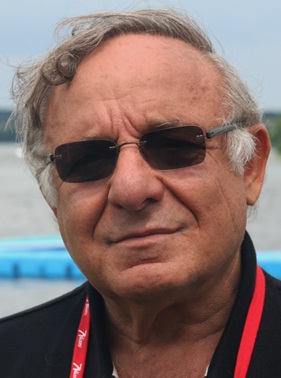
Dr. Isaac Adezis.
Let me start with the ‘bottom line’, with my conclusion: they are demonstrating in the wrong place against the wrong people.
Now, let me explain.
Most of the demonstrations have placards about greed, about how Wall Street companies and executives earn obscene sums of money while the country is truly suffering. American companies are awash in record profits while unemployment is at record highs. Something is genuinely not right… Right?
Yes, right, but what they are demonstrating against are the manifestations to the problem not the cause of the problem.
What is the cause?
The profit motive. That is where the problem is.
Imagine what would happen if medical doctors turn profit oriented and measure their success by profits. And medical schools taught them that profit should be their goal by which they should measure their success.
Many of us will die from unnecessary surgeries, go bankrupt from non ending medical bills or insurance premiums, and productivity of labor will go way, way down because we will be hospitalized to no end.
What does medical training say?
“Do no harm!!”
“The patient is first!”
Doctors need to get paid, but it is not the pay that SHOULD drive their decision-making. I emphasized the word “ should” because in reality some doctors do succumb to the pressures of society to measure themselves by how much they earn and have compromised their professional judgment for the sake of making money. But they are the anomaly, not the norm, while in business, IT IS the declared, legitimate, sought after norm.
And what happens than?
Look how the pharmaceutical companies behave. To get repetitive, sustainable, profits, they supposedly develop new drugs. In reality, they are doing continuous improvement to old drugs and calling them new drugs to justify their R and D expense. (I have inside information.)
Are they really patient oriented or see the patients as a source of opportunities to make money. So they discover diseases that need treatment although the treatment and even the disease, there is doubt about their severity or dysfunctionality. .
Pharmaceutical companies are making tons of money while the country is going bankrupt as health care expenses are getting out of hand.
But what I am describing here is happening not only with the health care industry. It is happening with the whole business world. Each CEO is trying to make better earnings per share especially if the company is in the stock market. If his earnings per share are below the ones of competition and repetitively so, the CEO will be replaced.
There is no shame in focusing on profits. That is what business schools teach, and schools of economics justify with endless logical mathematical proofs.
To increase profits and have them grow sustainably, companies invent goods and services, whose social justification is marginal at best and penetrate new markets, where the benefits to the new market are questionable. We know for instance that cola drinks are full with sugar. Causing obesity. Causing heart attacks. Still we export them worldwide. And fried food also causes obesity and high blood pressure and a myriad of other diseases. Los Angeles local government has forbidden opening of fast food outlets in poor parts of the city. Poor people use fast food as their nourishment; they have no money and do not know better. But, we nevertheless export those same products to any poor country we can and destroy their health. And make money.
The whole system is profit oriented to the detriment of the market it serves.
I am not pointing a finger at the CEOs, by the way. Individually, they are conscious, spiritual people, or at least some of them. It is the system that causes them to behave a certain way. It is the system of rewards and punishment. “When you join a circle dance you have to dance like the rest “ is a Balkan expression.
What to do?
Business leaders should be professionals. Like MDs. Put the client first. “Do no harm!”
Instead of profit being the goal, it should be the limitation. In other words: “serve the clients — profitably !!!” should be the goal, rather than “Increase profitability and let the customers beware”…”they are grown up”…”information is available”….”free choice etc”…” I consider all these statements fig leaves to cover greed.
So, where should the demonstrators demonstrate? In front of the business schools and schools of economics where they indoctrinate business leaders, where the legitimization of profits is done.
The profit motive is deeply ingrained in our education. One reason for that is that profit provides a goal that can be quantified.
Quantification of goals enables professors to develop beautiful mathematical models and theories which they would not have been able to do otherwise. Client orientation, professional treatment of clients, and not doing harm, are not easily quantifiable. With the profit measurement, big corporations, especially the multi nationals, can be controlled: There is a measurable criteria of success or failure. With non-quantifiable criteria like professionalism, and client true care of, such controls could not be as accurate.
We have developed a whole ideology of business which would rather be precisely wrong than approximately right.
MY hero is not Welsh of General Electric. “The burn and slice “ executive who made ROI the idol to worship.
My hero is Steve Jobs who loved his clients, his application developers, his computer developments. And the customers loved him in return. So did the developers. So did the employees; people fought to get hired by Apple.
Do you really think that Steve Jobs could have developed Apple into the most valuable company on earth if he was just profit motivated?
Profit was the result of the love he has had for everything he has done.
Here is a quote from him: “Remembering that you are going to die is the best way I know to avoid the trap of thinking you have something to lose. You are already naked. There is no reason not to follow your heart.” Steve Jobs
Did he say anything about making as much money as you can before dying?
He followed the heart and our business education has nothing about following the heart. All courses are on how to make more and better MONEY. I know I taught in several business schools.
When a person knows he is facing certain death, the real truth what life is about comes out. And it is love. Love for whatever we do.
I, and I bet you too, will go to a doctor that loves his profession more than he loves his wallet. And I want to train, develop managers, executives who love more what they do for their customers profitably, than how much profit they have made.
Conclusion: The demonstrators are demonstrating the leaves of the tree, not its roots. Because they apparently do not see the roots. They demonstrate what they see.
I wish they would demonstrate in front of Harvard Business School, the Kremlin of business education, the school who led and still leads those who train those who are being demonstrated against.
Demonstrate in front of the Chicago School of Economics where Milton Friedman got a Nobel Prize for defending religiously that the purpose of business is business.
They are the culprits. We are the victims.
Sincerely,
Dr. Ichak Kalderon Adizes
This entry was posted on Friday, October 28th, 2011 at 11:39 am and is filed under English, Policy Issues. You can follow any responses to this entry through theRSS 2.0 feed. You can leave a response, or trackback from your own site.
- Bookmark :
- Digg
- del.icio.us
- Stumbleupon
- Redit it
VilNews e-magazine is published in Vilnius, Lithuania. Editor-in-Chief: Mr. Aage Myhre. Inquires to the editors: editor@VilNews.com.
Code of Ethics: See Section 2 – about VilNews. VilNews is not responsible for content on external links/web pages.
HOW TO ADVERTISE IN VILNEWS.
All content is copyrighted © 2011. UAB ‘VilNews’.

 Click on the buttons to open and read each of VilNews' 18 sub-sections
Click on the buttons to open and read each of VilNews' 18 sub-sections 








































.jpg)



